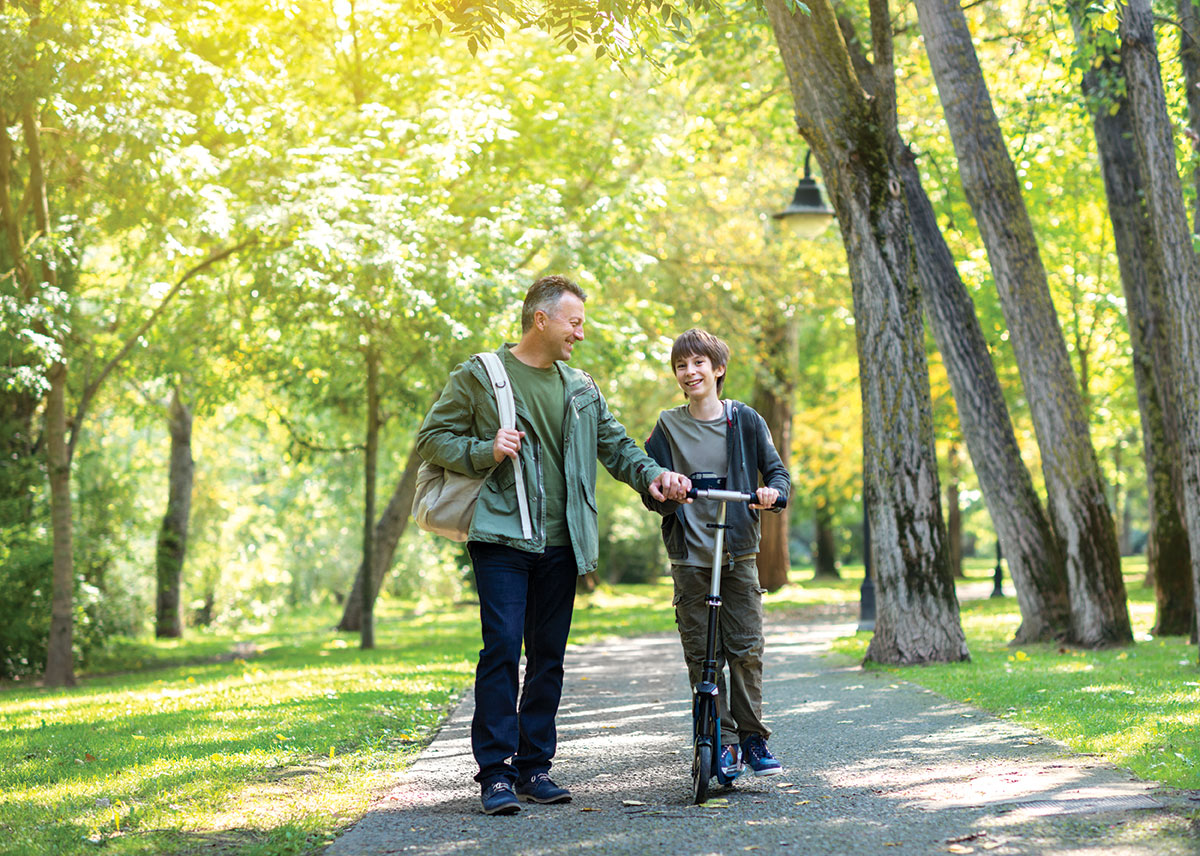
Talking to Your Child About Drugs & Alcohol
By Matthew Quinn, LCPC, CADC
Today kids as young as ten years old are beginning to experiment with alcohol, marijuana, and tobacco. Because the brain is not fully developed until the mid-twenties, young people are more likely to take risks compared to adults. When the brain is still developing, addictive substances physically alter its structure and function faster and more intensely than in adults. These effects interfere with brain development, which can affect decision-making, judgment, impulse control, emotion, and memory. Using drugs or alcohol at an early age also increases the risk of addiction.
For many parents, discussing this topic can be difficult, but research confirms the idea that when parents talk to their children about drugs and alcohol, they are much less likely to become users. If you’re thinking about starting the conversation with your kids, consider taking these steps:
Start When They’re Young
It’s better to start talking with your child before he or she reaches the teenage years. As a parent, it’s important to make sure your child is aware of your values and concerns. Start early and continue the discussion throughout the teenage years.
Have a Clear Message
It’s important to explain that not all kids try drugs and alcohol and using these substances is not a rite of passage. Even using alcohol or drugs once or twice can cause health problems, lead to trouble with school or the law, and create problems with friends and family. Even if you used drugs or alcohol as a teenager, it’s okay to talk to your kids about not using. In fact, if you had any negative experiences or consequences because of your use, you may want to tell your kids about it.
Explain the Consequences of Drug and Alcohol Use
It’s essential that parents be parents to their children, and not try to be their friends. Teens will hear many messages about drugs and alcohol that are unclear and mixed. A parent who wants to be the “cool” parent may be communicating that drugs aren’t dangerous or risky. Without being too rigid or judgmental, let your children know that there are consequences for using drugs and alcohol, and that their healthy development can be affected.
Use Teachable Moments
Talk regularly to your child about drugs and use every opportunity you can. For example, if there’s a story in the news about drugs or a related topic like depression, use that as a reason to have a discussion. Also, it’s vital to understand that frequent, regular conversations are needed to get the message across — once is not enough.
Listening is critical!
Listening is the difference between a real conversation and a lecture — and kids hate lectures. Show your children that you value their thoughts and feelings. Get involved and stay involved as they develop and grow. Listen to their struggles and stresses. Also, make the conversation age appropriate — a conversation about drugs is very different with a 10-year-old than with a 16-year-old.
Set a Good Example
Your kids watch what you do, even more than you may think. Set a good example with your own behavior and be conscious of your own substance use, even if it’s just having a glass of wine or a beer.
Look for Signs of Drug Use
Be aware of any indication that drug use is happening. These signs can include:
- Any changes in personal appearance or behavior such as red or watery eyes, or changes to eating or sleeping habits.
- Changes in mood, such as lack of motivation, depression or extreme hyperactivity, or other unexplained mood swings.
- Missing possessions, lack of money.
- Poor school attendance, increased need for discipline or changes in grades.
- Possession of drug paraphernalia.
- Secretiveness about possessions and personal space, increased isolation.
Get Help at the First Sign of Trouble
Parents don’t always take substance use seriously at first, especially with alcohol and marijuana. They may think it’s just a phase, but then can be overwhelmed when casual use becomes a real problem. Don’t underestimate the risks of drug use. Seek out a professional and ask for help. Your child’s future may depend on it! When a teen’s substance use is treated early, it frequently leads to abstinence and can result in no further problems. This is even true when the use is mild or moderate.
About The Author: Matthew Quinn provides community relations for Rosecrance Health Network in the western suburbs of Chicago. He completed his Bachelor’s Degree in psychology at the University of Notre Dame and Master’s Degree in clinical psychology at the Illinois School of Professional Psychology. Matthew is a Licensed Clinical Professional Counselor (LCPC) and Certified Alcohol and Drug Counselor (CADC) in Illinois. He has been counseling adolescents and adults in individual, couples, and family counseling for the past 15 years.
